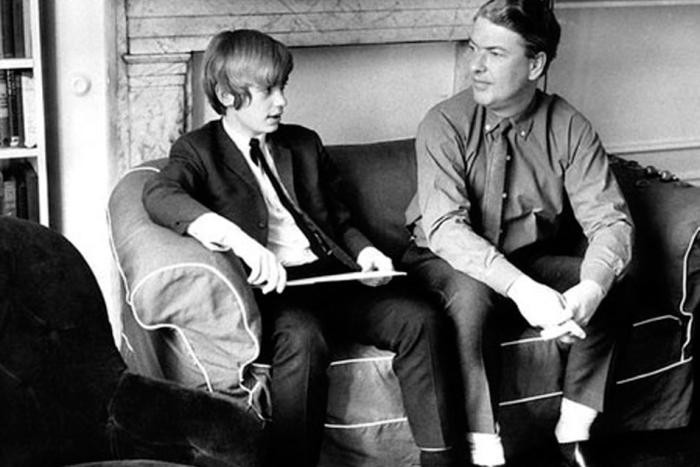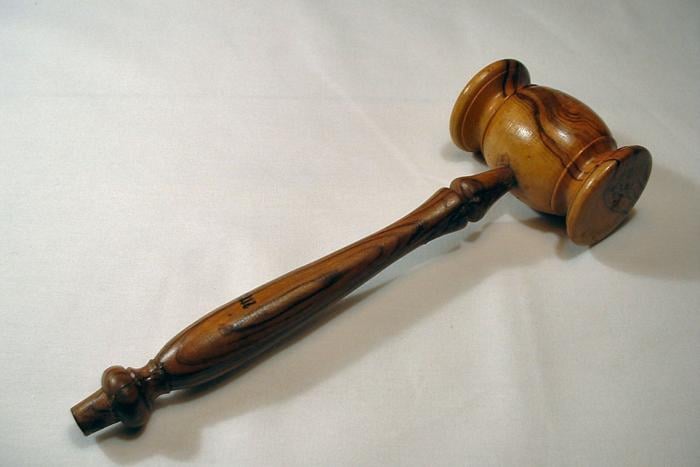On Monday, Chrystia Freeland was awarded the 2013 Lionel Gelber Prize for her book Plutocrats, a penetrating, deftly reported study of the world’s super rich—an emerging elite class better known these days as the one percent. Freeland took the Gelber, given annually to the world’s best English non-fiction book “on foreign affairs that seeks to deepen public debate on significant international issues,” from among a particularly strong shortlist that also included Anne Applebaum’s landmark Iron Curtain: The Crushing of Eastern Europe 1944-1956.
Hazlitt spoke with the Alberta-born Freeland about Plutocrats last November, in the days immediately following the re-election of Barack Obama, and a particularly goofy campaign season that was dominated by talk of the disappearing American dream and income inequality—in short, it was a campaign about class, the great American subject that dare not speak its name.
Plutocrats provides one kind of history of the world, post-2008 financial crisis, by tracking the emergence of this global, super elite class. Reading this book during the U.S. presidential election, what was most amazing was how thoroughly the extreme trauma of 2008 seemed to have been forgotten, and that a candidate like Romney could argue for a return to many of the policies that got us into the mess.
Yeah, that’s one of those things particularly mystifying for Canadians. I think the truth is that once the immediate shock dissipated, once Wall Street got over the thought that, “Oh my god, the world will end tomorrow,” the story very quickly became that this was not a crisis caused by a lack of regulation, this was a crisis caused by too much regulation. It was a crisis caused by social engineering. This wasn’t a crisis caused by Wall Street, this was a crisis caused by the middle class.
There was a series of conversations that prompted me to write the book. I was talking to Wall Street guys not long after the crisis, in spring 2009, and asking them in a delicate gentle way, “Do you feel a little bit bad, do you feel a little bit guilty?” Not at all! And what was astonishing was that it wasn’t their fault. One guy said, “It’s the fault of my in-laws, they bought a bigger house than they can afford.” You laugh, but that’s what they said. Another guy was almost identical, it was the fault of his cousin, who also bought a bigger house than he could afford and too many cars. My favourite one was a private equity guy who divides his time between New York and Palm Beach and he said, “You know who’s to blame? It’s my golf caddy. I have this wonderful golf caddy in Arizona when I golf there and he owned three condos. How can a golf caddy own three condos?”
And during the campaign it was government that was often cast as the bogeyman. Obama found himself defending the idea that government could in any way play a positive role in the economy.
What’s important to understand about the U.S. is the extent to which the state is invisible to Americans. That’s what’s so interesting about Romney’s 47 percent remark. So many Americans do not perceive themselves as getting any benefit at all from the government, they perceive support from government as ridiculous because they haven’t seen it affecting them.
But Americans don’t understand how much they’re getting already. There’s a really interesting book about this called The Submerged State by Suzanne Mettler, and her point is that since Reagan the political deal was that you can get [support] through government programs but only if you disguised them. So government support started being delivered though the tax code, through a tax rebate. But to them that’s a tax rebate, that’s not government support. My healthcare [in the U.S.] is subsidized by the government, but I get it through my company. I don’t see it as a government benefit. If I’m Canadian I feel like my government is providing me health care and I’m happy with that.
In America that’s been hidden. So many social programs are provided by NGOs. Which get government support and funding so that somehow is more acceptable. But—and Mettler writes about this—this turned out to be a very dangerous bargain for the Democrats. Because in the end we have this whole society that even though they’re getting quite a bit of government support they don’t know it. Mettler did these great surveys in which she asked people, “Have you ever gotten any support from the government?” and 96 percent said no, never, none. That helps to explain Americans’ inability to believe that government can do anything good for you.
One thing that’s fascinating about the book is how much it reads like a psychological manual for understanding the plutocrats.
That famous Fitzgerald line—”The rich are different from you and me”—is a great starting point; he goes on to say [the difference is] because they are born rich. What’s interesting about so many of these [plutocrat] guys is that they weren’t. And that has this very contradictory impact. On the one hand they are more like us, they have a background that is more like everyone else’s. This is not a Downton Abbey world where all the guys at the top went to Eton.
Interestingly, though, the result of doing it yourself—and of course, no one totally does it themselves—is a few things. One is the feeling that, at least in some ways, that “I’m better than everyone else. I am one of the super men.” And you hear this a lot from them. I was just going over a transcript of an interview I didn’t include in the hardcover that will be in the paperback version of the book; it’s this Silicone valley guy who says, “Look, the way technology works today, the people that are the smartest and the hardest-working are just going to do better than everyone else.” So part of it is this sense of being a member of the elect. If I can do it why can’t you?
Another interesting thing is that if you belong to that super class, the feeling is that your having been super economically successful is a sign of your general excellence. And so society as a whole will be better off if more capital is in your hands. And this is expressed most nakedly by Edward Conard, a former Bain Capital guy who has argued that it’s better for the middle class to pay higher taxes while the people at the very top pay lower taxes. Because as a society we want more money in the hands of the very rich, because they are better allocators of capital than the government or the middle class—witness the fact that they’re very rich. And they got very rich by allocating capital very well, right?
At times the interviews in Plutocrats abound with self-justification. It’s remarkable, post-financial crisis, how those on Wall Street or the super rich now paint themselves as victims—witness the 2012 campaign. Again, the crisis wasn’t caused by too little regulation or restraint, as you say, but too much. But I suppose this is fundamentally human behaviour, no one likes to think of themselves as the villain.
I do think it’s important to point out that we all do this. We all persuade ourselves of our own virtue. People don’t like to be bad. Some interesting work that’s being done in behavioural psychology these days shows that we like to think we arrive at our views by a rational, Platonic result of cogitation. But actually what happens is that we sort of know what’s best for us, then we work backwards and figure out a credible justification for that conclusion. The rub is that the super rich, because they have more financial resources than everyone else, have a greater ability to evangelize or advance their view of things.
In my mind one of the smartest explanations for the financial crisis comes from Willem Buiter. He is a European economist, and lest you think he is a crazed socialist he’s now the chief economist for Citigroup.
His explanation is that it was about cognitive capture. It’s not as if the regulators or the economists or the financial journalists were getting money in envelopes form the masters of the universe on Wall Street. But they became part of this shared intellectual environment. Where certain things and policies that “happened” to be in the interest of Wall Street came to be viewed as being in the collective interest. And you know, it happened kind of slowly and gradually. We all have these little things that influence us. If you’re a journalist you need access. If you’re in PR these guys are your clients. If you’re a regulator you might be thinking of your next job. That revolving door. I want to emphasize that I think very few of these people are nakedly corrupt. It’s more about these subconscious rationalizations and justifications that create this intellectual climate.
Though the 2012 presidential campaign was dominated by appeals on both sides to voters’ economic interests, much of the media’s post-election analysis explained Obama’s victory with demographics—namely, the Republicans’ or Romney’s inability to connect with Latino, black, women, or young voters. Is that all it’s about?
I think that’s a mistake. The economic argument was much more important than we, the media interpreters of what was going on, allowed for. I think it was much more important even than the political discourse permitted it to be. You have to bear in mind that to speak directly about class has been almost taboo in America for a long time. But when it comes down to the actual reasons why people voted, economics was a very strong reason.
I want to share what was my favourite post-election data. In the exit polling 52 percent said Romney’s policies favour the rich, 4 percent said he favours the middle class, and just 2 percent said he favours the poor. The same exit polls said just 9 percent thought Obama favours the rich, 43 percent the middle class, and 30 percent that he favoured the poor.
Fifty-four percent of voters said the US economic system favoured the wealthy. And that included 74 percent of Obama voters, a really big number. So, if you want to take demographics or gender into account, they won’t get you up to 74 percent of the Obama vote. To me, that 74 percent of people thought the economic system favoured the wealthy—that was a more powerful current than was reflected in the debate before the vote. I don’t think that’s an accident. Particularly for the Republicans, to interpret this race as a referendum on whether this economy is working for the middle class or not is a very, very bad interpretation. Really bad. It’s much better to interpret it as “we didn’t do the right thing for Latinos,” or “we said some crazy things about rape.” Those things, they might think, are easy to fix.
Given our state of “cognitive capture,” or captive politics, and how it’s encouraged policies that are driving income inequality, do you have reasons to be optimistic?
Well, we saw it in the presidential election. There’s something about democracy that is a natural counterbalance to income inequality growing too high. Even as we had increased disparities in wealth in the 19th century, you also had growing democracy. And the consequence of that in the beginning of the 20th century was a big social and political accommodation. In the U.S. you had the trust busters, the progressive era, the New Deal, the invention of the social welfare state as a way to deal with the inequalities the industrial revolution had created. The story of the ‘50s and ‘60s was the great compression, when inequality actually shrank.
And we saw the power of democracy as a counterbalance in the presidential election. It was shocking for the Republicans, and especially for the Republican super rich. They really didn’t believe Obama was going to win, they believed their own rhetoric so absolutely that they were stunned that a majority of Americans, especially poor Americans, looked at the US economy and agreed with the president that it wasn’t working for the middle class. And they wanted someone to be their president who believed that, who believed it wasn’t working and believed the playing field had to be tilted a little bit. So the power of democracy versus plutocracy is one reason to be hopeful.
And we’ve been here before. What we’re seeing today is similar to what happened with the industrial revolution and we collectively figured it out. Now this historical reason for optimism is relative, because figuring things out after the industrial revolution involved two world wars, communist revolutions in China and Russia, and a Great Depression.
If you think about it, that’s what it took to sort ourselves out. I think that would constitute a fairly painful adjustment process. I hope we don’t go through that again.






